DEFENDERS OF COLOMBIAN COFFEE
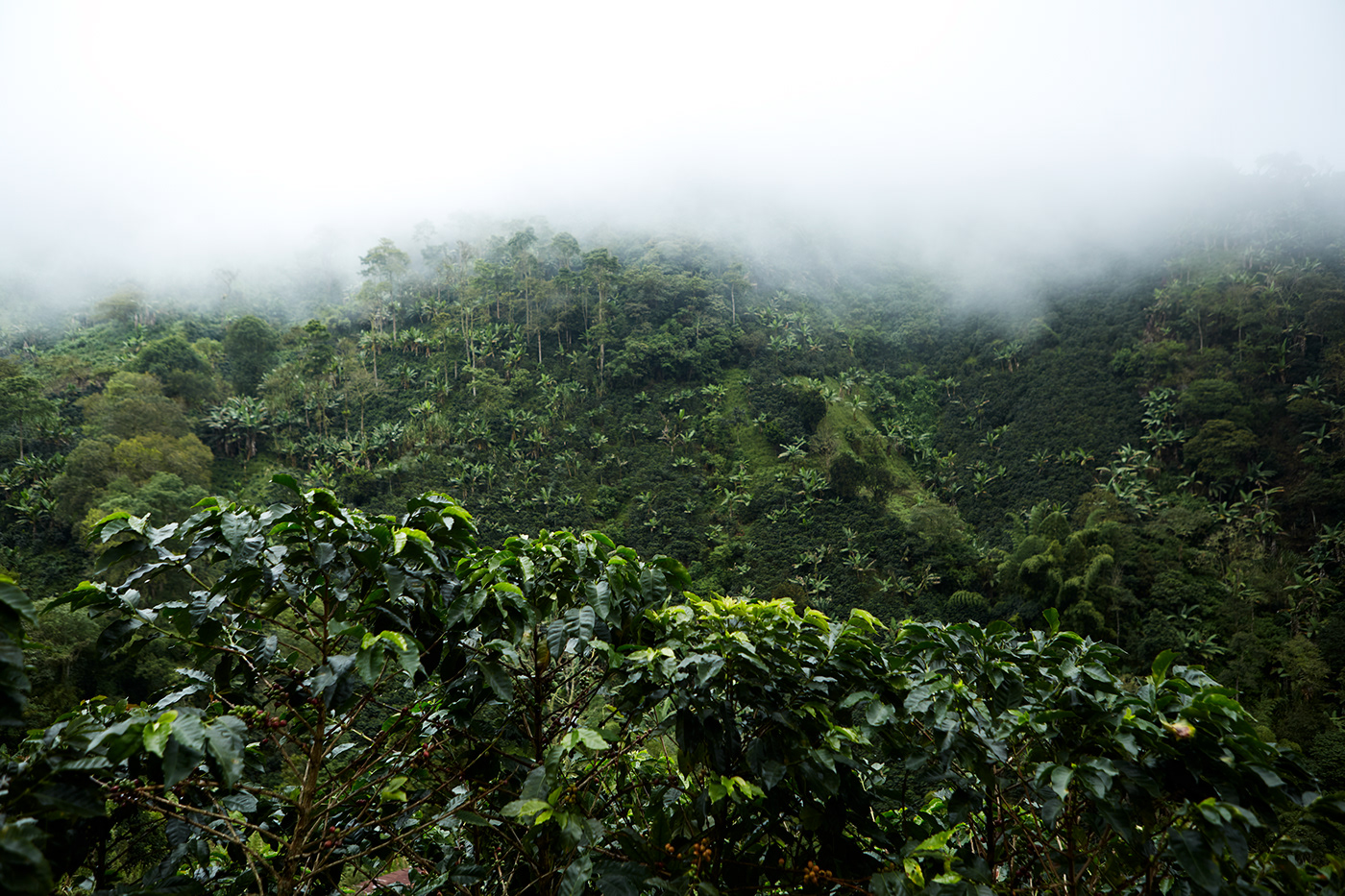

Coffee, in its 4 different varieties produced between Asia, Africa and Latin America, is the most requested and consumed drink in the world, second only to water and tea.
Until the nineteenth century the world's coffee needs were entirely satisfied by the crops of Asia and Brazil, then the spread in Asia of a fungal plague that decimated the plantations, forced the large international coffee companies to supply themselves only from the plantations of Brazil.
Shortly thereafter the new goal of these large companies was to encourage coffee production in other areas of Latin America, in particular Mexico, Costa Rica, Guatemala and Colombia.
In Colombia the production of coffee took root successfully and today represents the main agricultural and export product, with 550,000 producers throughout the country and a total of 900,000 hectares of cultivated land.
But what dynamics regulate this world market and what impact do they have on its direct producers today?
The factors that influence this market, in fact, are climatic, social, but above all economic.
The first to suffer the consequences of these variables are the campesinos, whose scrupulous and consumed hands give life to the raw material, the fresh coffee beans, but which remain the last in percentage order to draw recognition and gain in proportion to the huge slice of the market that coffee generates in the world economy.
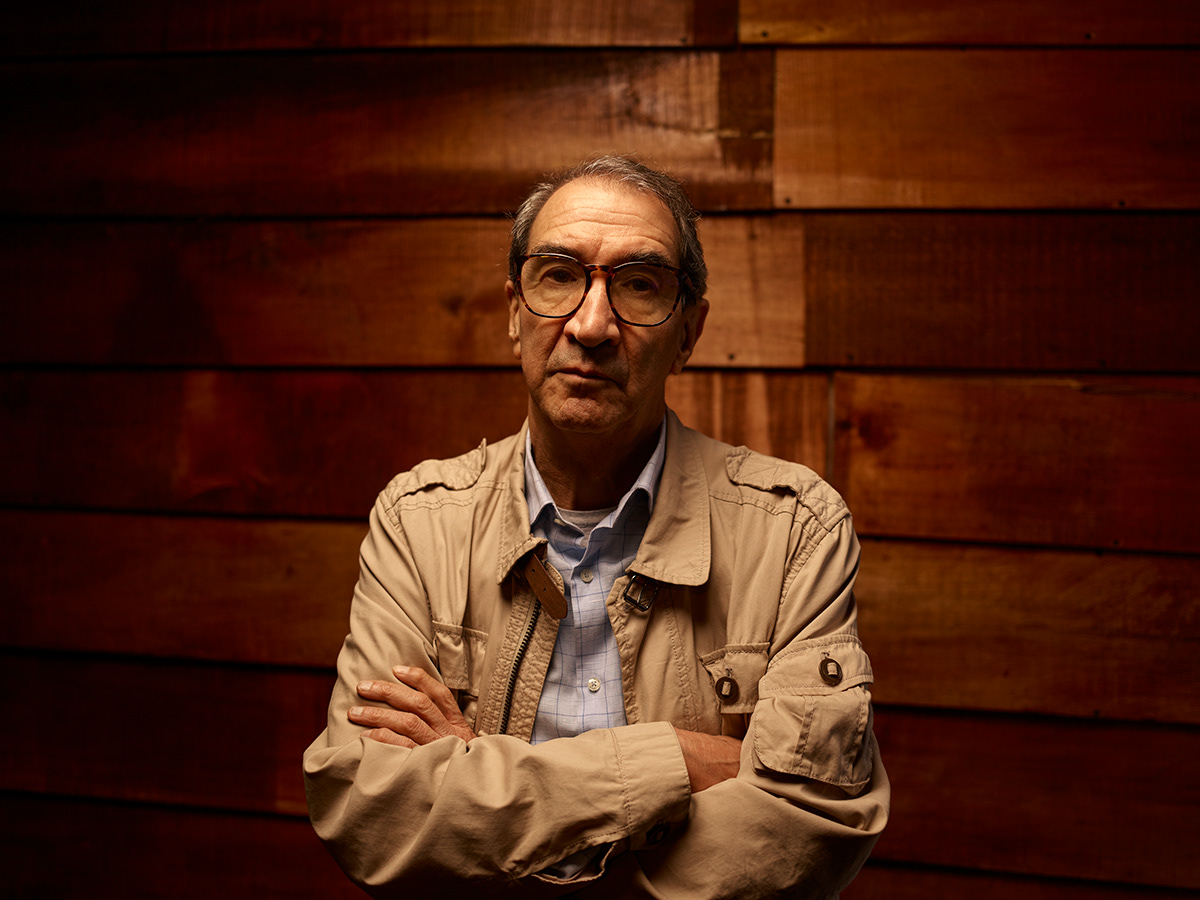
Engineer, economist, activist and popularizer Alvaro Suarez Montoya.
To understand the complexity of the topic I met and interviewed the greatest connoisseur of the subject in Colombia: the engineer, economist, activist and popularizer Alvaro Suarez Montoya who tells us how "the neoliberal economic policy of the last 30 years in Colombia has meant that today 50% of the national economy is in the hands of foreign capital, which obtain large percentages of profit on investments in Colombian territory."
In the coffee market, percentages are no exception:
"Today in Colombia 4 out of 5 bags of coffee for export are in the hands of foreign multinational companies. As a result, the domestic export of its own and independent is just 1 in 5 bags of coffee.
The repercussions on the economy are obvious: Colombia has turned into a neocolonial country, tributary within the maximum financial circuits of big capital, and with an upper class, entrepreneurial and managerial, which is a partner of large foreign financial capitals."
Everything began back in the days, when the Colombian entrepreneurs who first dedicated themselves to the cultivation and export of coffee for the international market, realized that they did not have enough productivity to be able to finance the entire process, from harvesting to processing, until delivery to the ports of final destination, in Europe or the United States.
Within a few years, these domestic entrepreneurs ended up bankrupt and were inevitably supplanted by intermediary agents of large foreign trading houses.
Today a major role in protecting Colombian producers, even if in a small percentage, is still played by the so-called National Federation of Cafeteros, an institution born in 1927 by those same bankrupt national entrepreneurs and exporters who decided to come together and join forces.
The main goal of this association was to create a national branch of government dedicated to exports, to compete directly with foreign multinationals and guarantee, thanks to its own economic fund, to be able to intervene in cases of greater supply than demand, ensuring local producers greater earnings,stability and security.
In fact, this fund used to accumulate money when market prices were higher than the cost of production, or either financially support producers when prices on the international market did not guarantee producers to cover costs and make profits.
To this day, it remains marginalized at 20% of international exports of Colombian coffee.
The remaining 80% remains in the hands of large multinationals.
Although it may appear as misplaced in a free market economy, the National Federation of Cafeteros maintains a fundamental role in protecting and intervening the market.
This is because the productivity structure of coffee has a very strong initial disadvantage in Colombia, due to the geological nature of its crops: 85% of the 550,000 producers own and cultivate less than 5 hectares, in inaccessible and steep terrain that makes mechanized harvesting impossible and which, in fact, traditionally, is "pick to pick".
"If in this market of demand, where production exceeds in quantity the consumption in the market, colombian producers were to lose what is called the guarantee of purchase, of which the Federation has always been the guarantor, producers would remain in an inevitable position of disadvantage, at the mercy of 4 or 5 powerful multinationals, and on their own terms, all evidently to their advantage"
Nevertheless, the epilogue predicted by Aurelio Suarez Montoya seems inevitable: “what we expect in the future is what in economics is known as oligopsonium: a very limited number of buyers, many of whom are already tied to foreign capital funds
with shareholder speculations on the stock exchange.”
The question at this point is : What does it take for Colombian campesinos to be better protected?
"Many things would benefit, first of all a fair trade, a clear and transparent trade and not an oligopsonium with falling prices.
We should return to a price-fixing system.
Guarantee a fixed price, non-volatile, at the mercy of unpredictable circumstances, climate change or the devaluation of the dollar.
You should pay coffee fairly to the campesinos: cost of production plus tax of gain.
It’s about restoring a balance with the poor countries of the world.
The Colombian campesinos cafeteros need revenues in order to guarantee stable and above all sustainable production.
It is no longer acceptable to conceive of a world where the quality of life of a mini cross-country farmer in a Colombian cordillera is tied to the speculation on Wall Street multiplied by double speculation for the currency exchange tax.
There is an urgent need to re-establish an international trading pact (pacto de cuotas) and to impose new trade agreements that also take into account climate change, social justice and global inequality. And the benefits of these agreements need to be fairly shared among producers and are no longer lost between foreign intermediaries and cumbersome bureaucracies of the institutions.
It is worth mentioning that the market for coffee in grains is worth over 20 thousand million dollars in the world, and that the one served in the cup is worth at least 200 thousand million dollars, or perhaps more.
It is urgent that consumers around the world demand from their own governments that debts be repaid to the poor countries of the world that produce everyday consumer goods for the first world, accumulating debts for over a century."
This collection of images is a tribute dedicated to those who with their work, sacrifice and dedication defend the value of Colombian coffee and guarantee the consumption of this drink in the world that is too often taken for granted.

Antonio Jesus Guevara alias Chucho Agua



Antonio Jesus Guevara, known in his community as Chucho Agua for his activism in the protection and defense of water.
In this awareness-raising activity he’s become a real point of reference for his community, as well as spokesman of the community for the fight for rights.
Chucho is also a coffee producer and has always raised his voice to protect the rights of producers who have often faced periods of crisis, when the cost of coffee production exceeded the market value.
His most memorable gesture in defense of coffee producers is the scream to President of Colombia Manuel Santos.
In 2013 the president showed up in the community of Chinchiná where producers gathered and were about to start a strike to demand fair coffee purchase rates.
The president arrived and thought it was enough to offer a symbolic and completely unfair monetary compensation to quell the protests. Chucho shouted from the crowd "Senor presidente, no somos limosneros, somos cafeteros, viva el paro cafetero!"
Mr President, we do not want charity, we are coffee producers, long live the caficultores’ strike!
This gesture had a strong impact, many producers followed him in the strike, made their voices heard, and obtained real economic aid.
In the days we spent together I had the privilege to talk a lot with Chucho in particular about the environment, politics and capitalism.
One sentence in particular really impressed me because I believe it applies not only to Colombia, but to the whole world:
"El que compra (votos) para llegar, llega para vender"
Those who buy (votes) to get there, get there to sell.
In this awareness-raising activity he’s become a real point of reference for his community, as well as spokesman of the community for the fight for rights.
Chucho is also a coffee producer and has always raised his voice to protect the rights of producers who have often faced periods of crisis, when the cost of coffee production exceeded the market value.
His most memorable gesture in defense of coffee producers is the scream to President of Colombia Manuel Santos.
In 2013 the president showed up in the community of Chinchiná where producers gathered and were about to start a strike to demand fair coffee purchase rates.
The president arrived and thought it was enough to offer a symbolic and completely unfair monetary compensation to quell the protests. Chucho shouted from the crowd "Senor presidente, no somos limosneros, somos cafeteros, viva el paro cafetero!"
Mr President, we do not want charity, we are coffee producers, long live the caficultores’ strike!
This gesture had a strong impact, many producers followed him in the strike, made their voices heard, and obtained real economic aid.
In the days we spent together I had the privilege to talk a lot with Chucho in particular about the environment, politics and capitalism.
One sentence in particular really impressed me because I believe it applies not only to Colombia, but to the whole world:
"El que compra (votos) para llegar, llega para vender"
Those who buy (votes) to get there, get there to sell.
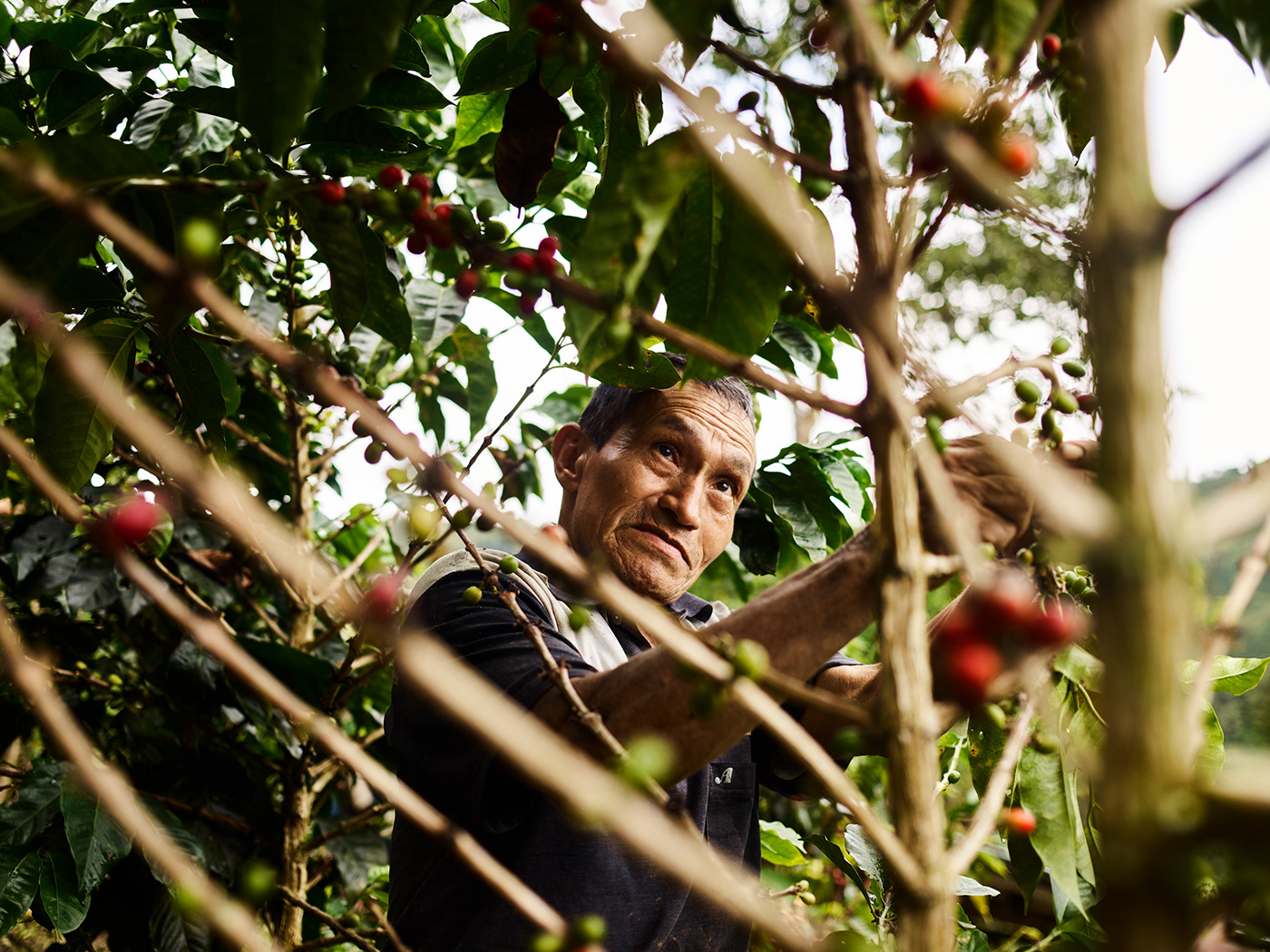

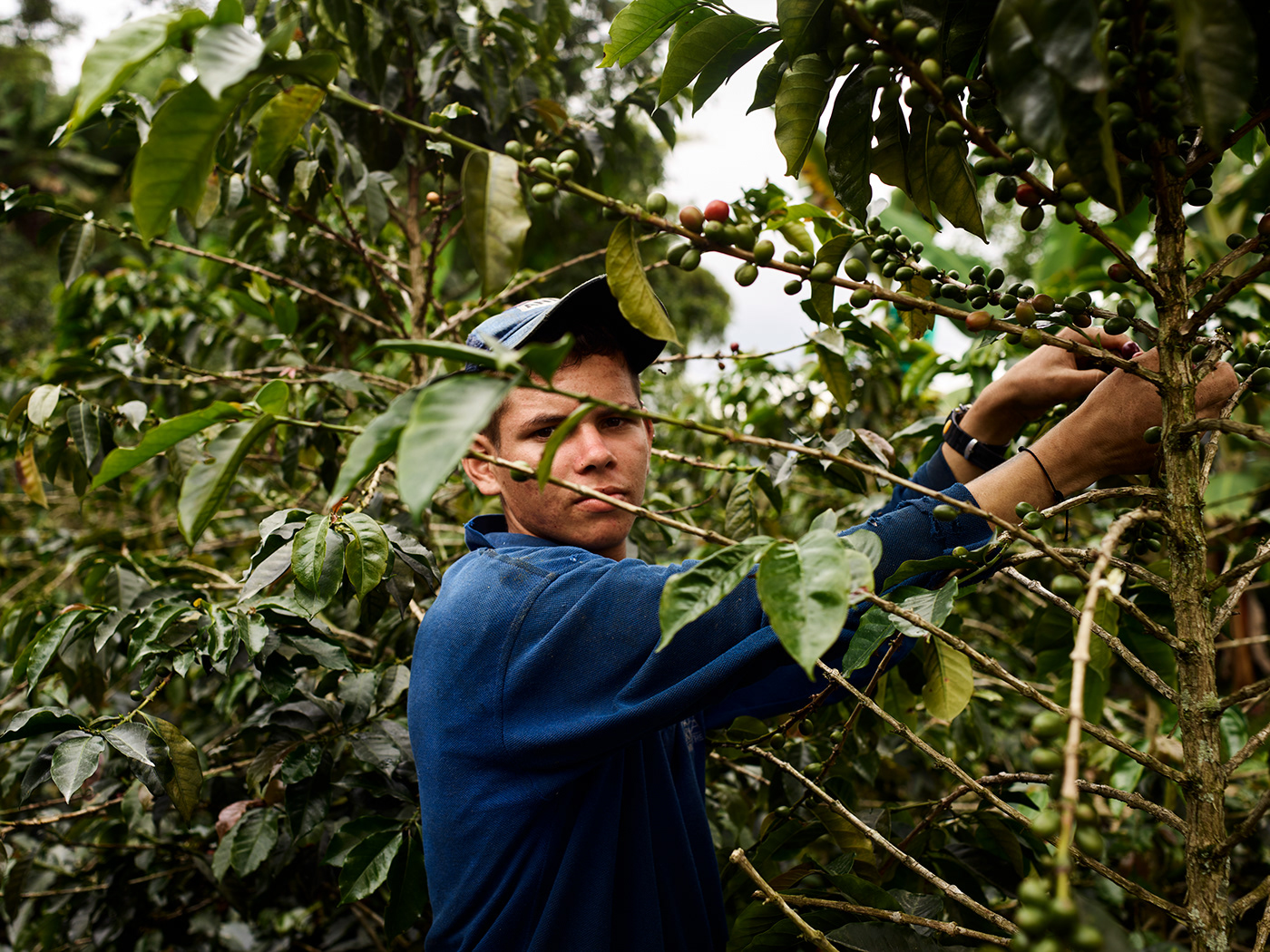
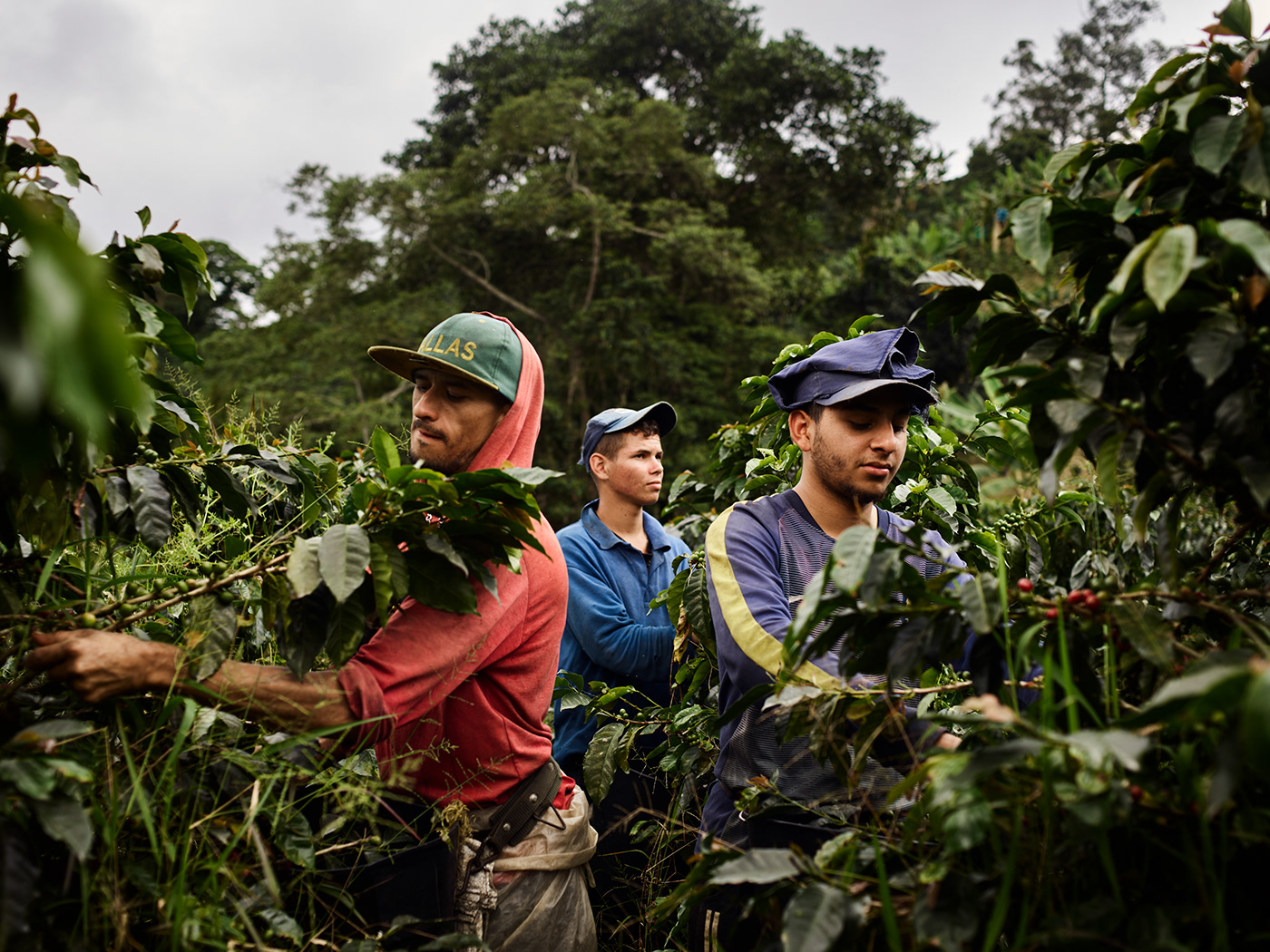



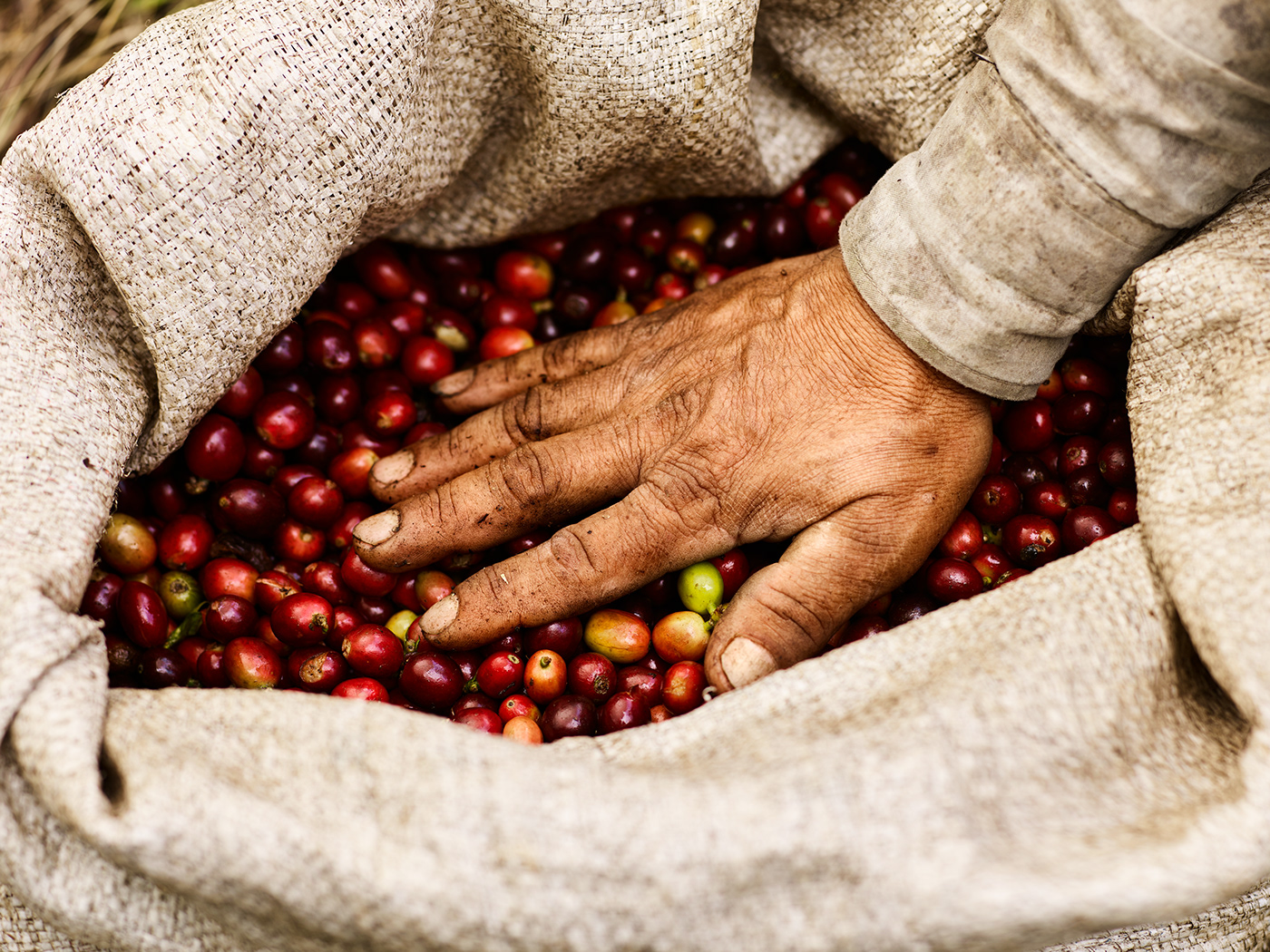
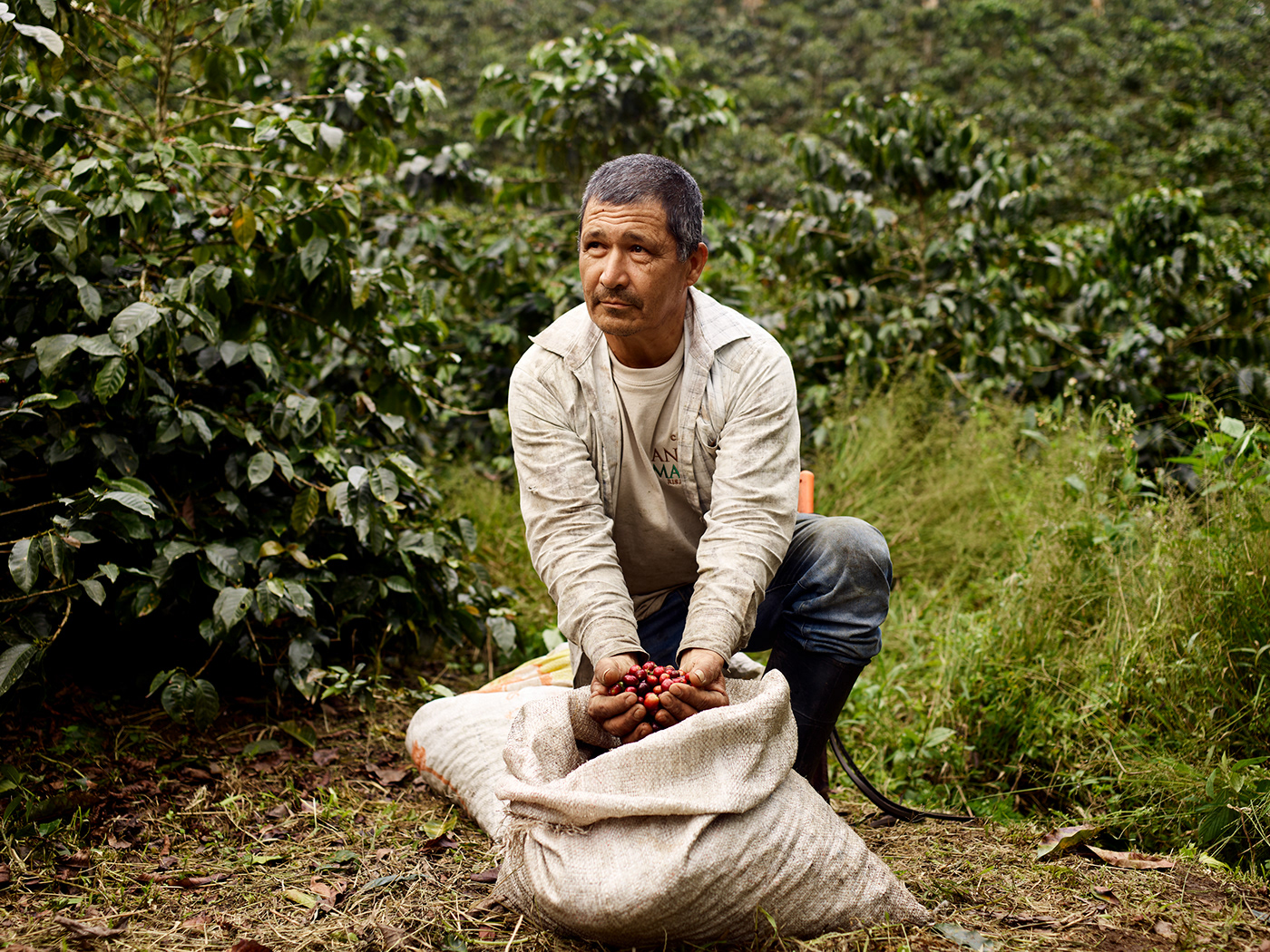
Today in Colombia women have a role of power in the coffee production.
There are many women who work at all stages of coffee production.
A physical and very tiring job that often adds up to the daily work of maintaining the house and family.
An occupation thanks to which many women have found emancipation, economic freedom and independence and dignity.
There are many women who work at all stages of coffee production.
A physical and very tiring job that often adds up to the daily work of maintaining the house and family.
An occupation thanks to which many women have found emancipation, economic freedom and independence and dignity.


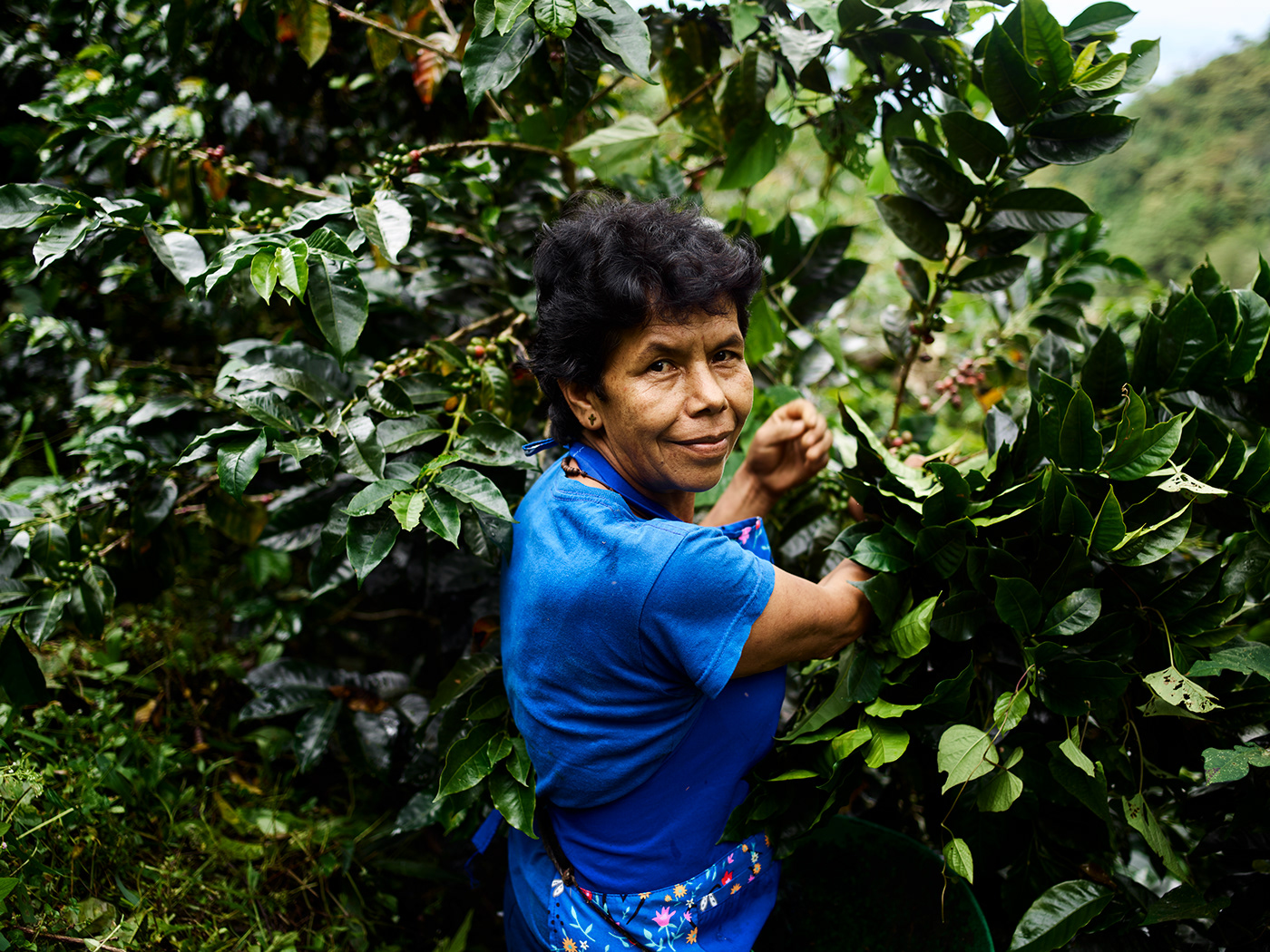
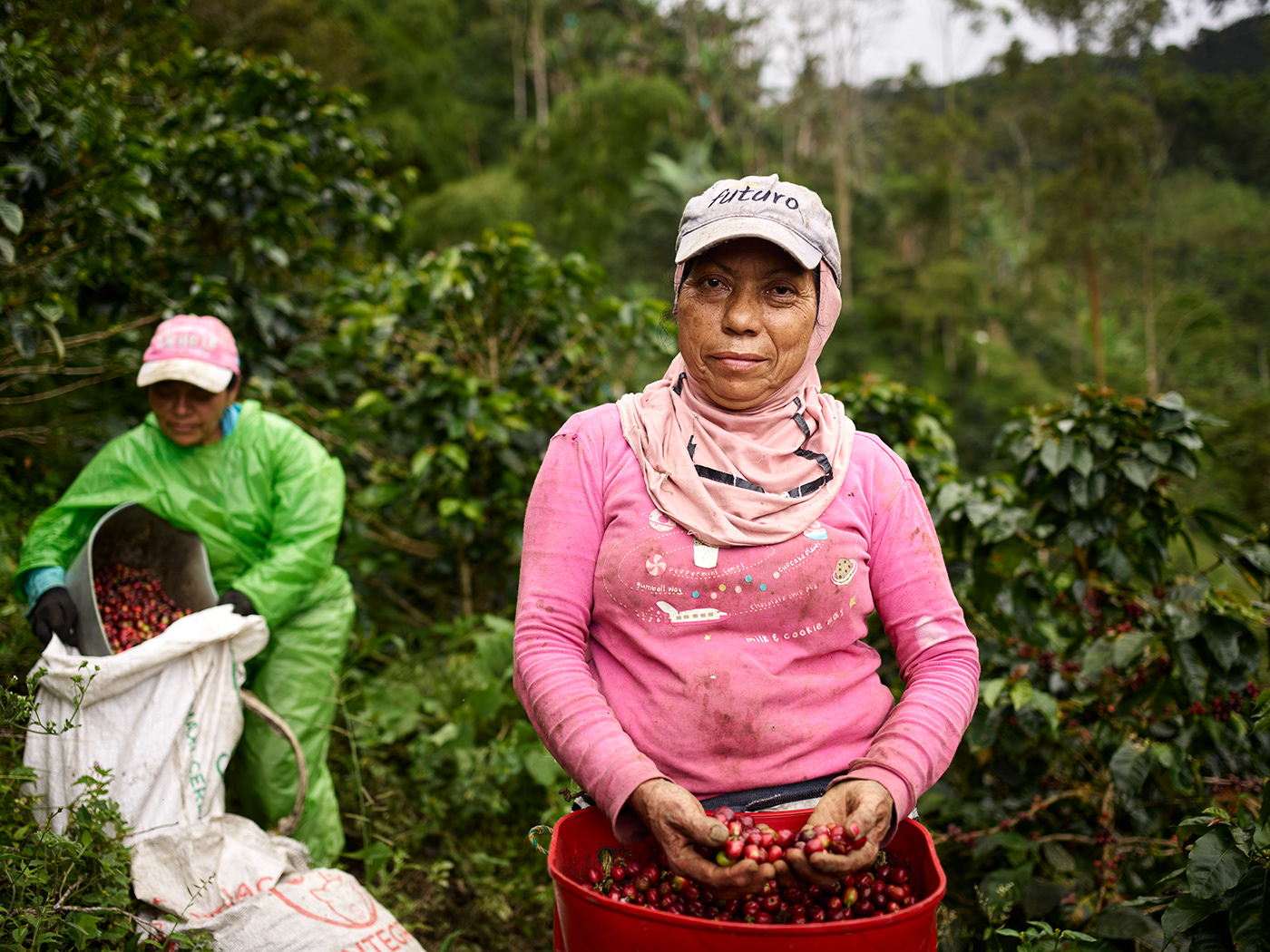
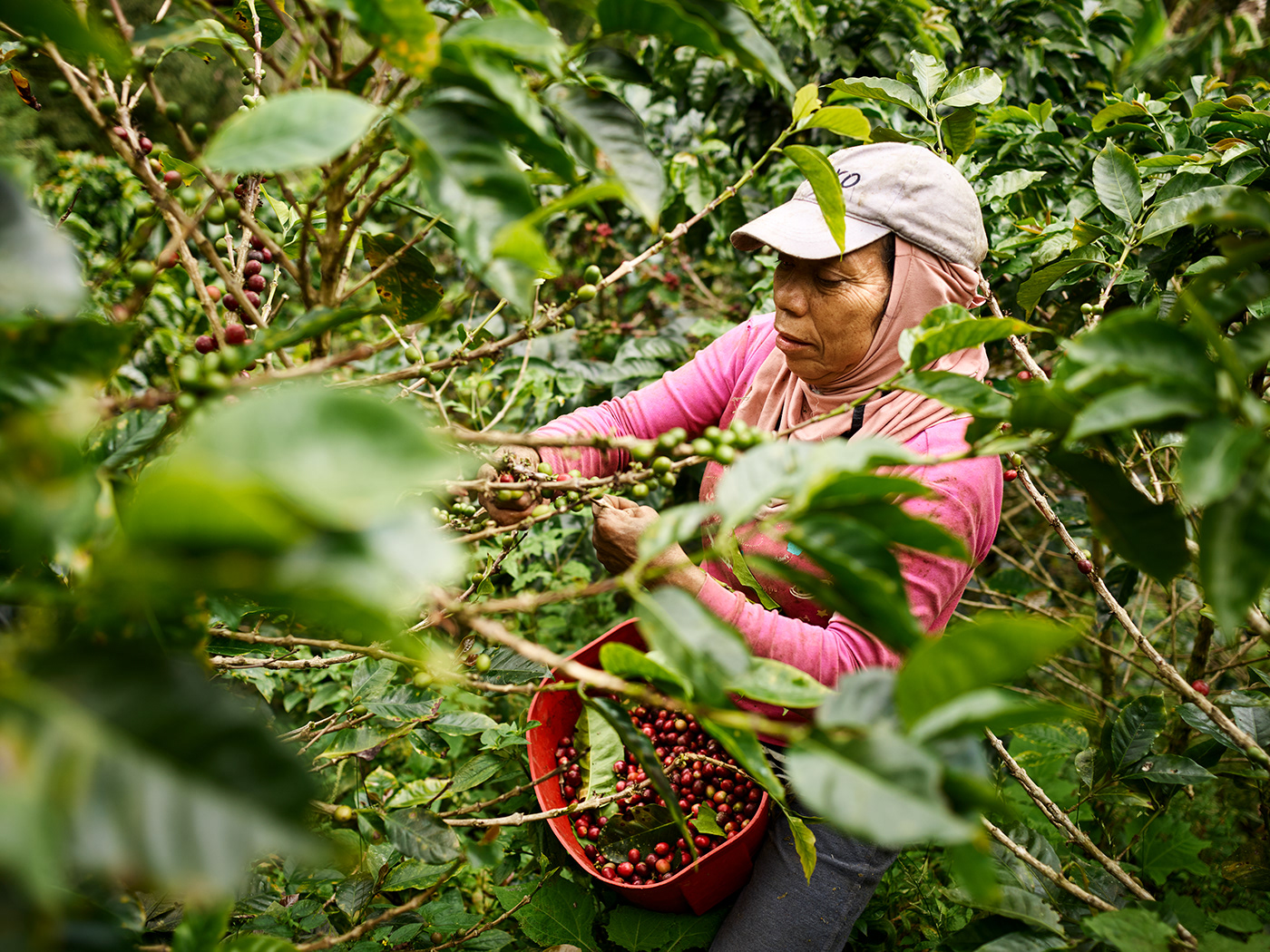
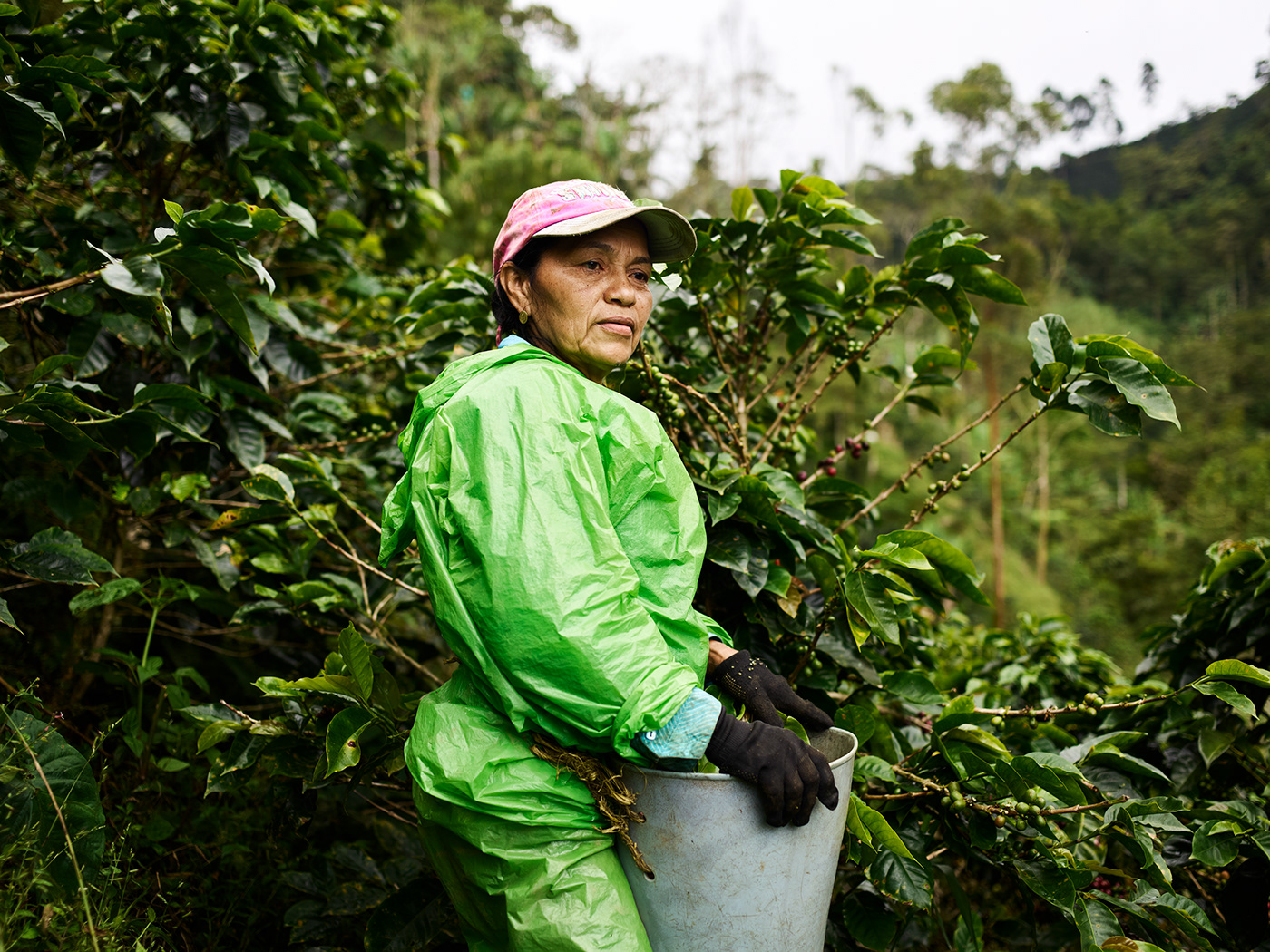
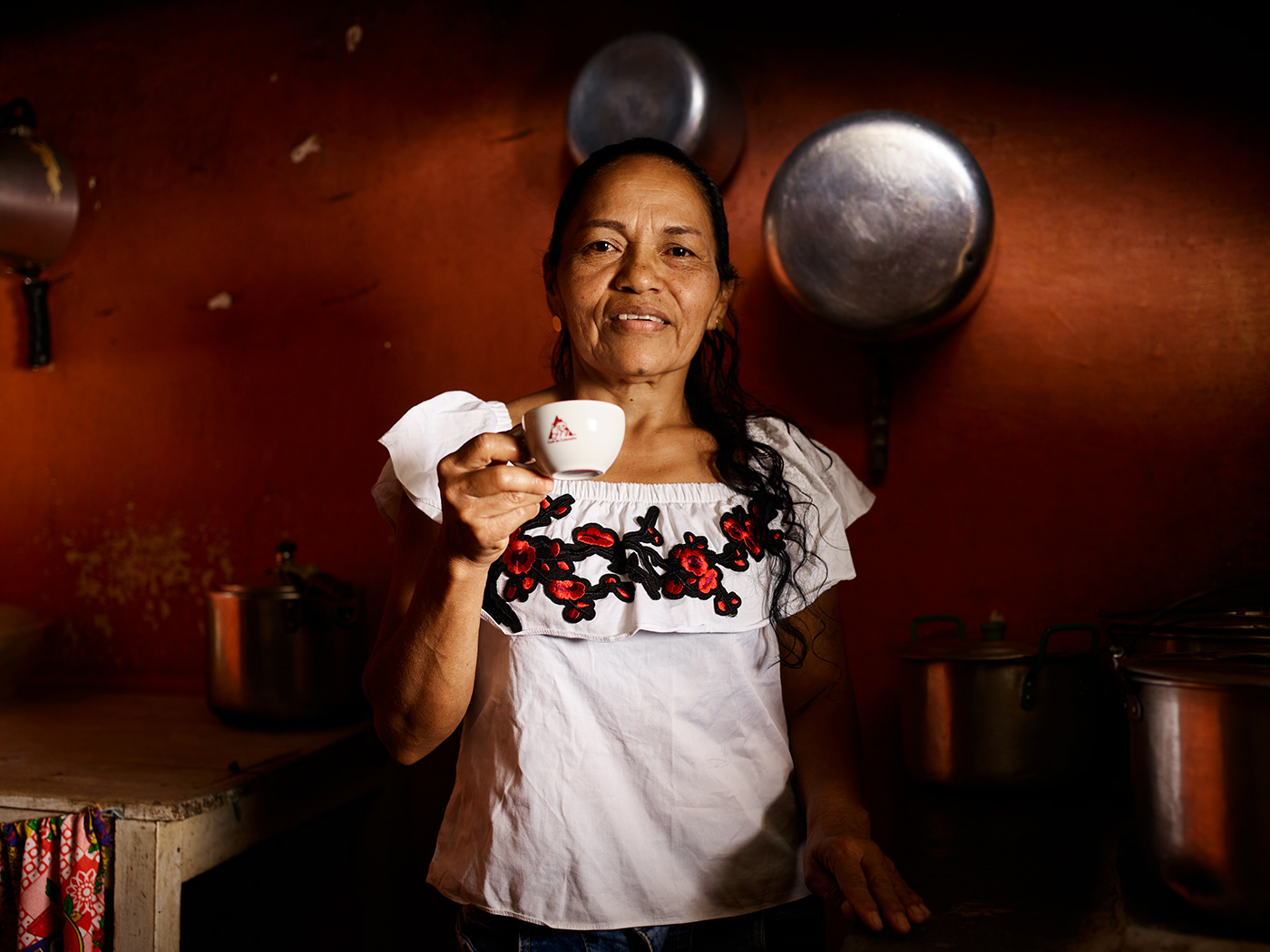


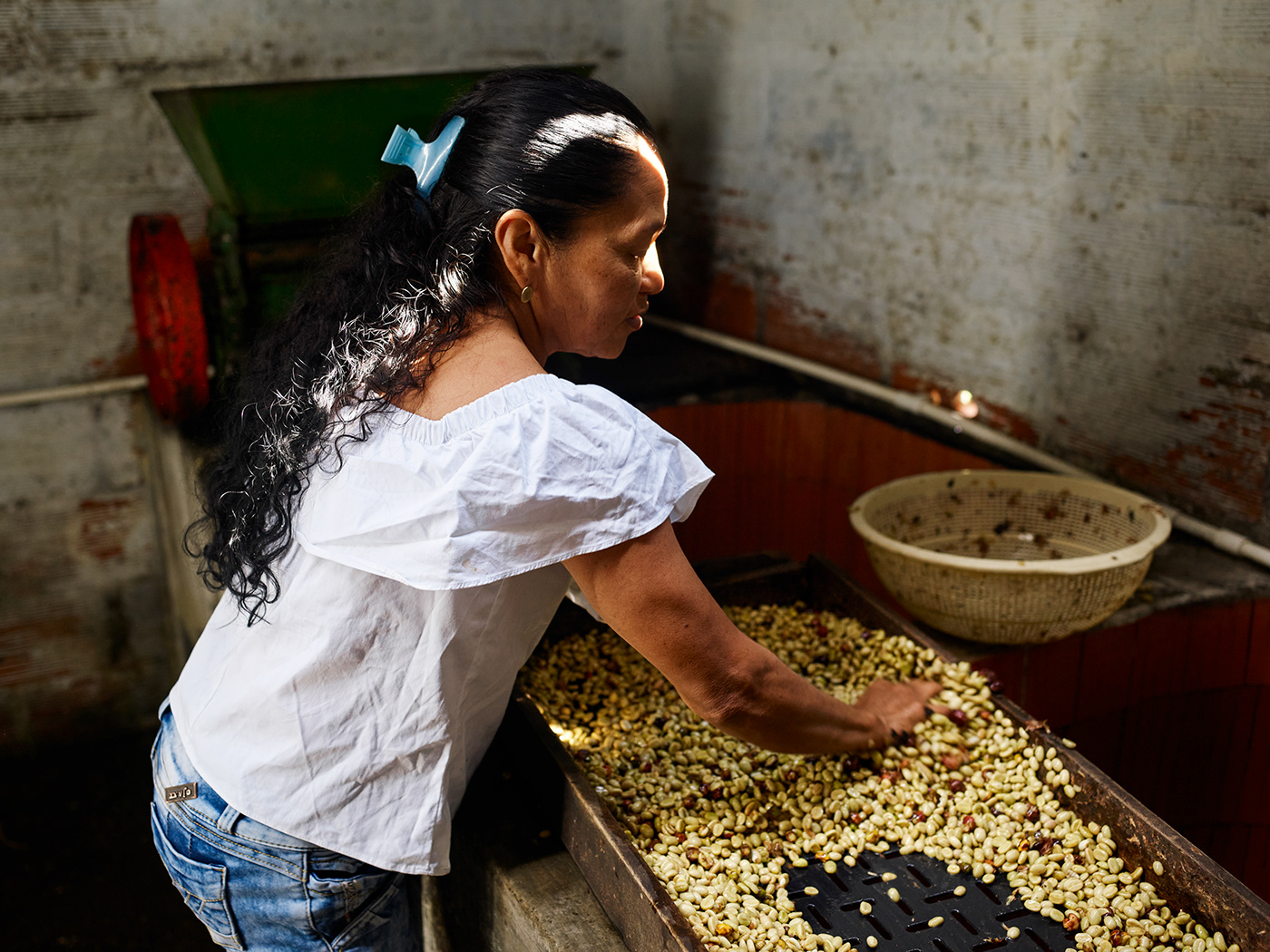

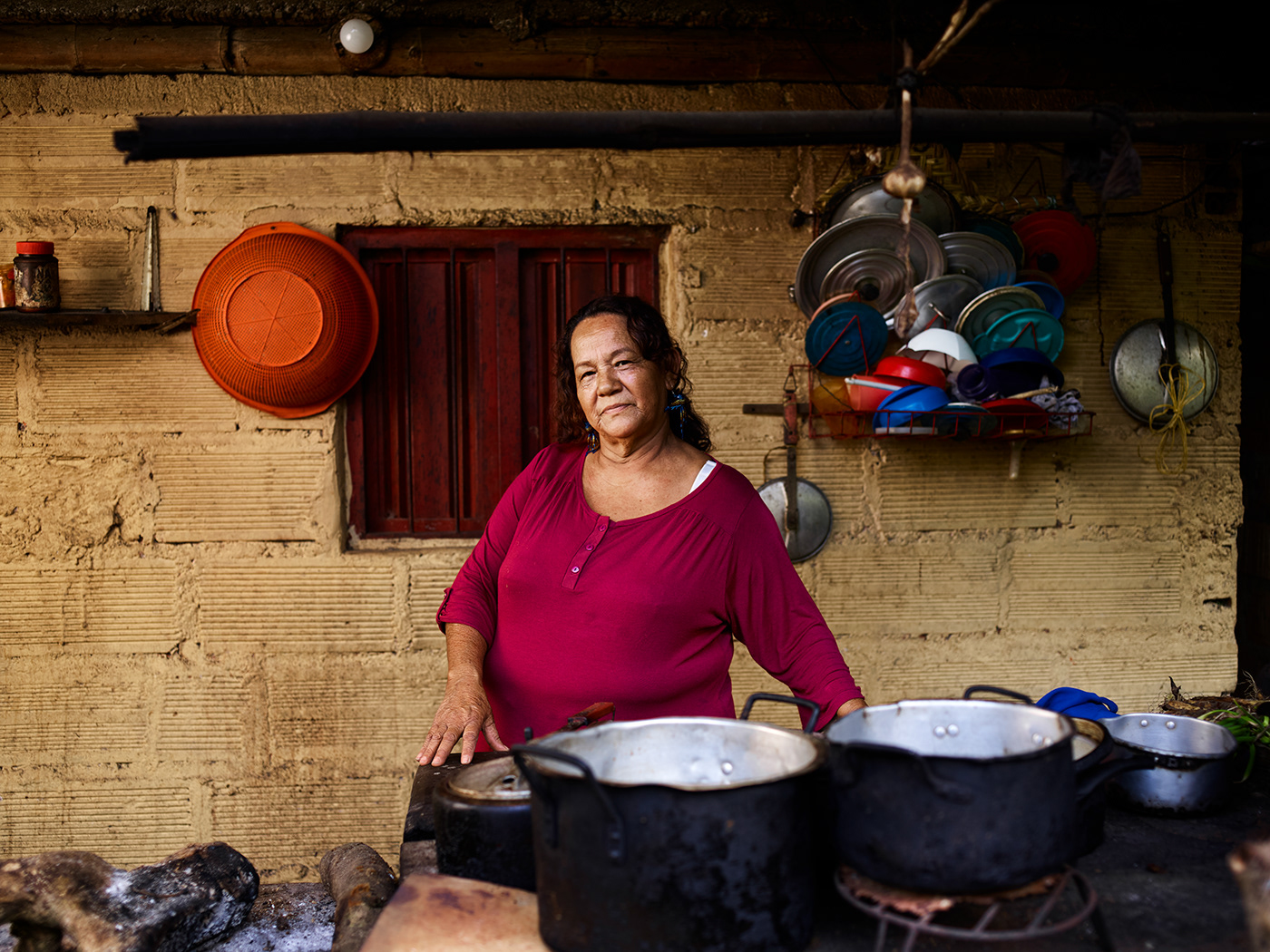
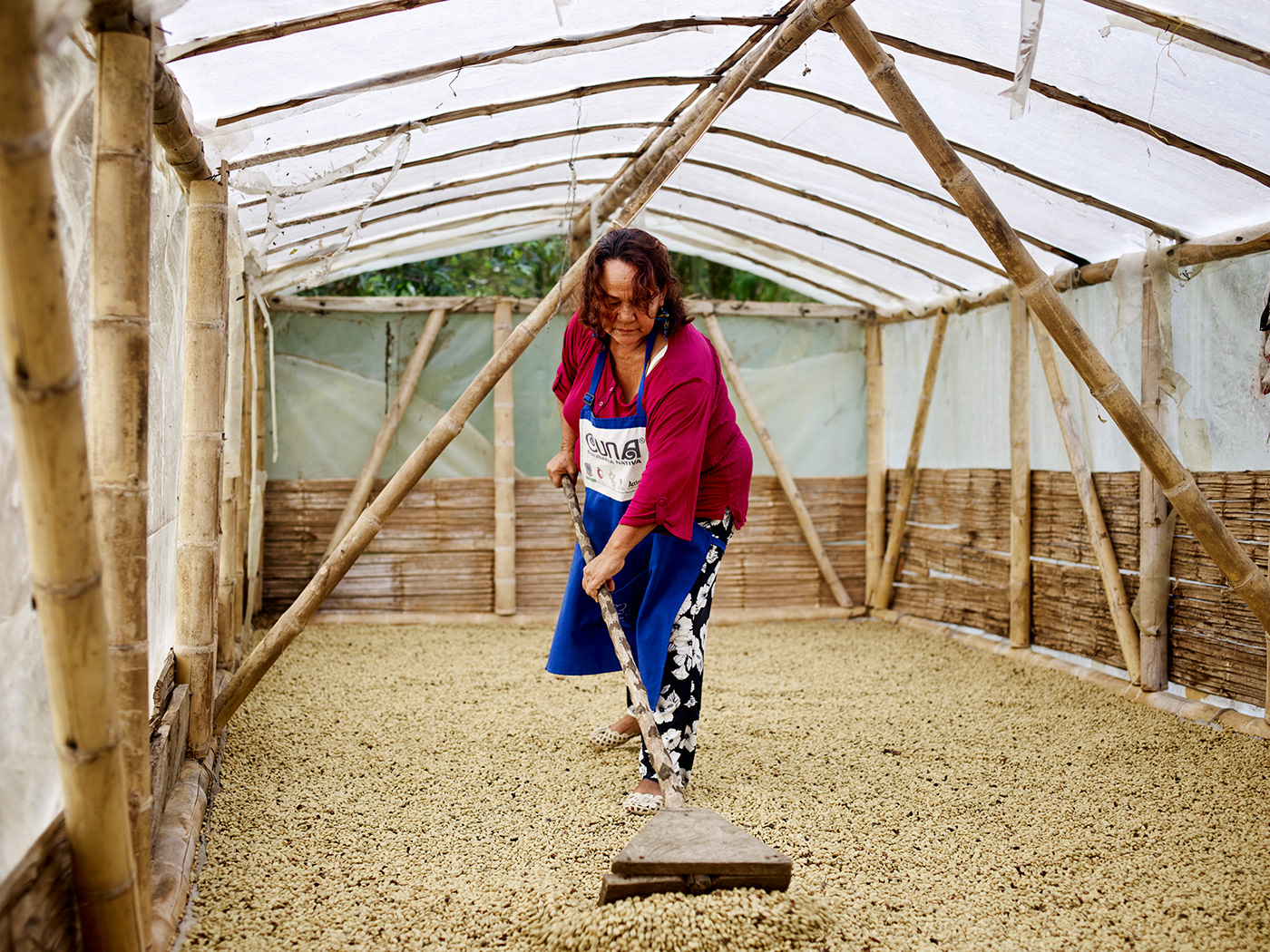

Don Barsi Trejos with his load of fresh coffee beans.
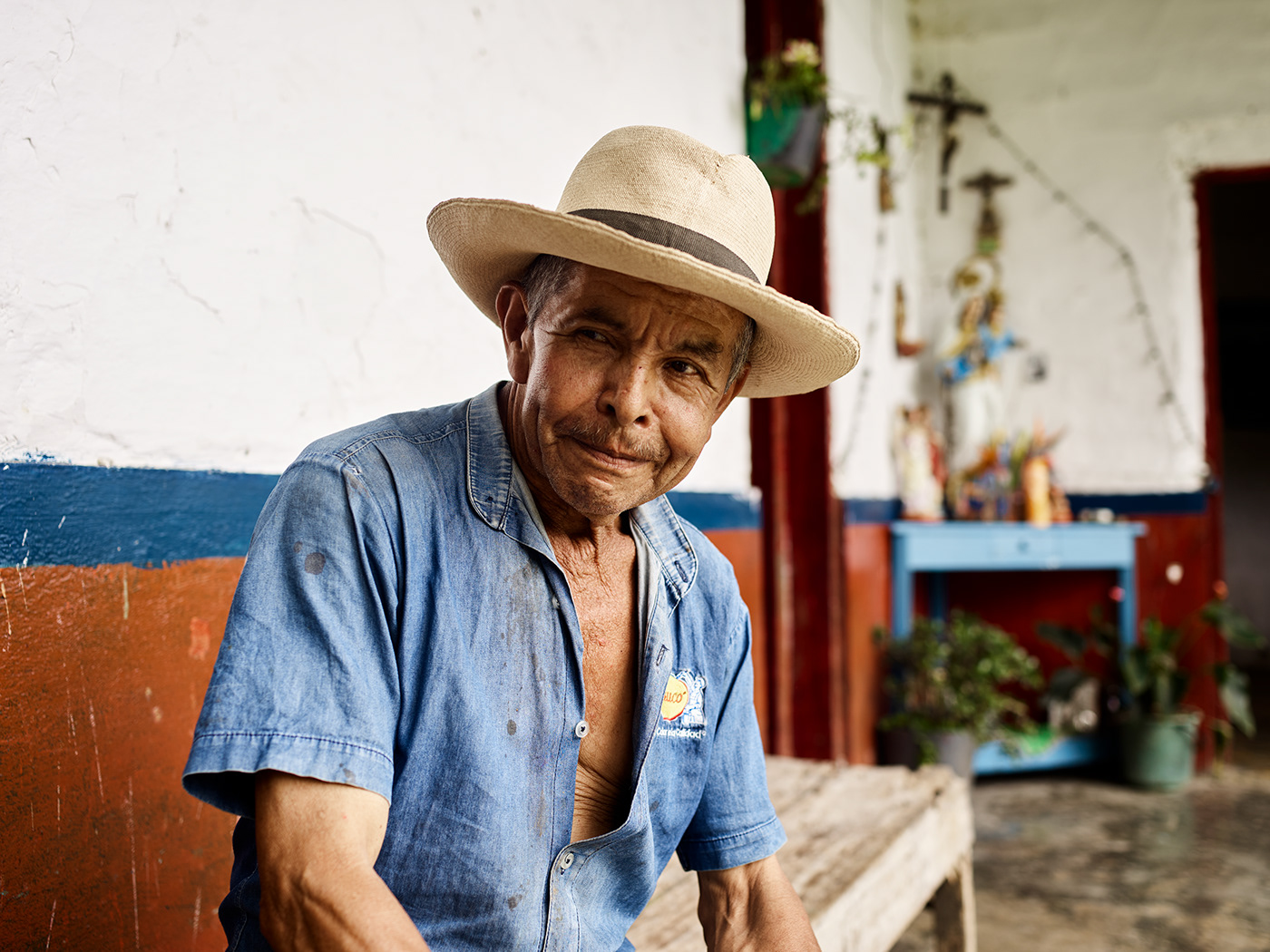
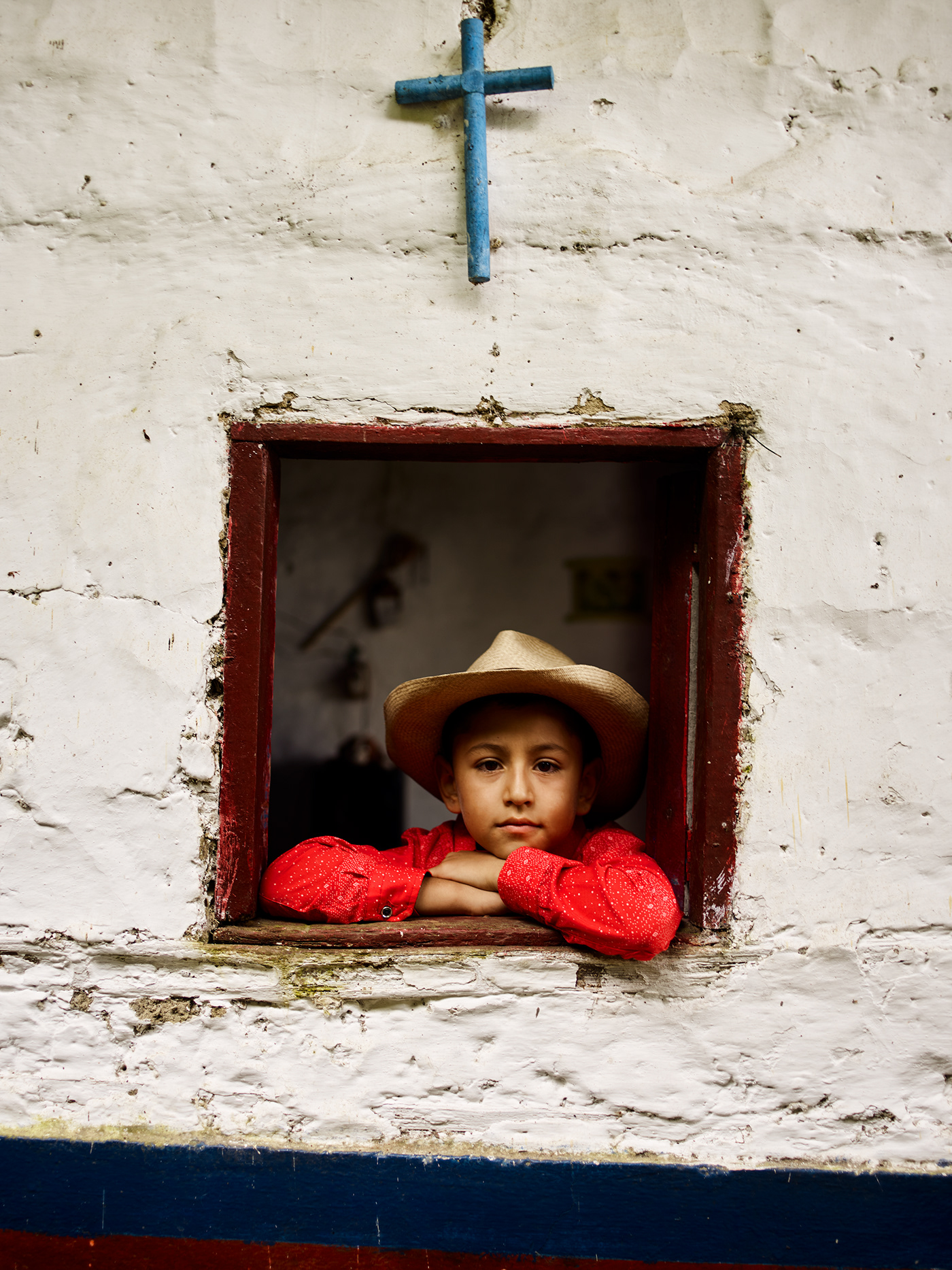


In the next image:
Jorge Garson, economist, farmer, coffee producer and member of the Entreverdes Association, a group of 205 coffee families from Pereira that decided to associate to make strength together.
The greatest commitment of the association is to value the quality of the producers, maintain a scrupiulous tracability that qualifies the product and obtain the best price, in a fair trade system, which provides greater welfare to the producer.
The greatest commitment of the association is to value the quality of the producers, maintain a scrupiulous tracability that qualifies the product and obtain the best price, in a fair trade system, which provides greater welfare to the producer.
In order to obtain maximum profitability in the chain, they decided to found Vibro, a company that through a complete agro-industrial process of transformation, becomes a premium "cold brew" drink, 100% produced in Colombia by 205 families of Pereira.
The company buys raw material at a fair price from the Entreverdes association and processes the coffee to the last link in the chain, up to the Vibro drink of excellent quality, ready for the consumer,
An export proposal with a seal of quality, fair trade, and 100% Colombian.
The company buys raw material at a fair price from the Entreverdes association and processes the coffee to the last link in the chain, up to the Vibro drink of excellent quality, ready for the consumer,
An export proposal with a seal of quality, fair trade, and 100% Colombian.


Josè,member of the Entraverdes associacion is the person who maintains direct relations with producers.
Alejandro is an entrepreneur from Pereira.
He decided to roast, prepare and serve the best quality coffee from the Entreverde associacion directly to Colombian consumers, reversing the trend of reserving the best quality only for export.
He decided to roast, prepare and serve the best quality coffee from the Entreverde associacion directly to Colombian consumers, reversing the trend of reserving the best quality only for export.


Around coffee live entire communities of people who work and live in balance with nature and who participate in the circularity and sustainability of cultivation.
Part of this sustainability is minimizing waste.
When the coffee plant has become excessively large and stops bearing fruit, it is pruned and then grafted, so as to resume its production in a few years.
The wood that is obtained from the pruning of coffee is particularly valuable and required as charcoal for cooking.
Here Don Javier Espinoza is working in the laborious preparation of coal, where the wood burns with a modulated presence of oxygen, guaranteed by a layer of foliage and soil that prevents the wood from crumbling into ashes.
Part of this sustainability is minimizing waste.
When the coffee plant has become excessively large and stops bearing fruit, it is pruned and then grafted, so as to resume its production in a few years.
The wood that is obtained from the pruning of coffee is particularly valuable and required as charcoal for cooking.
Here Don Javier Espinoza is working in the laborious preparation of coal, where the wood burns with a modulated presence of oxygen, guaranteed by a layer of foliage and soil that prevents the wood from crumbling into ashes.
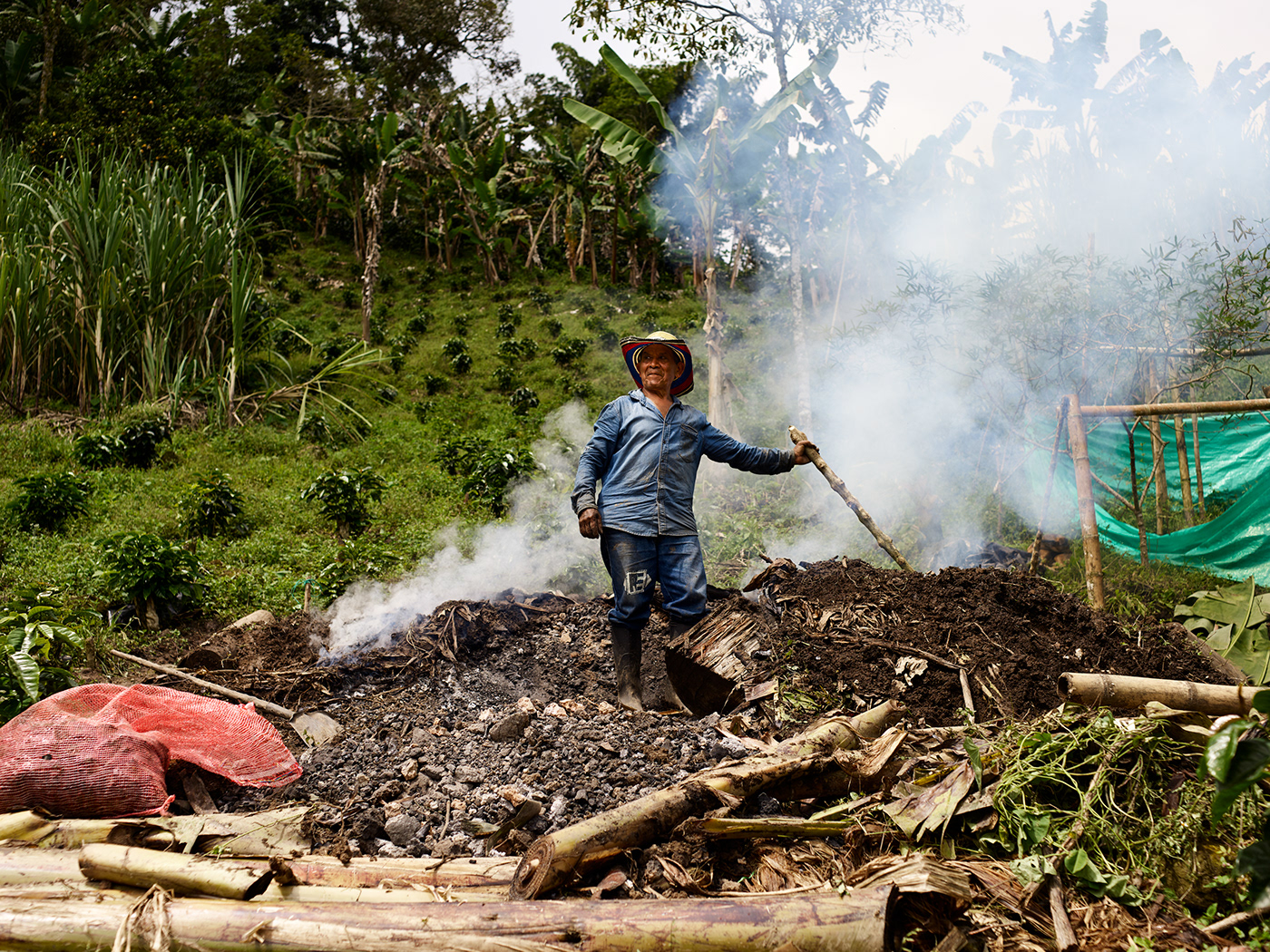

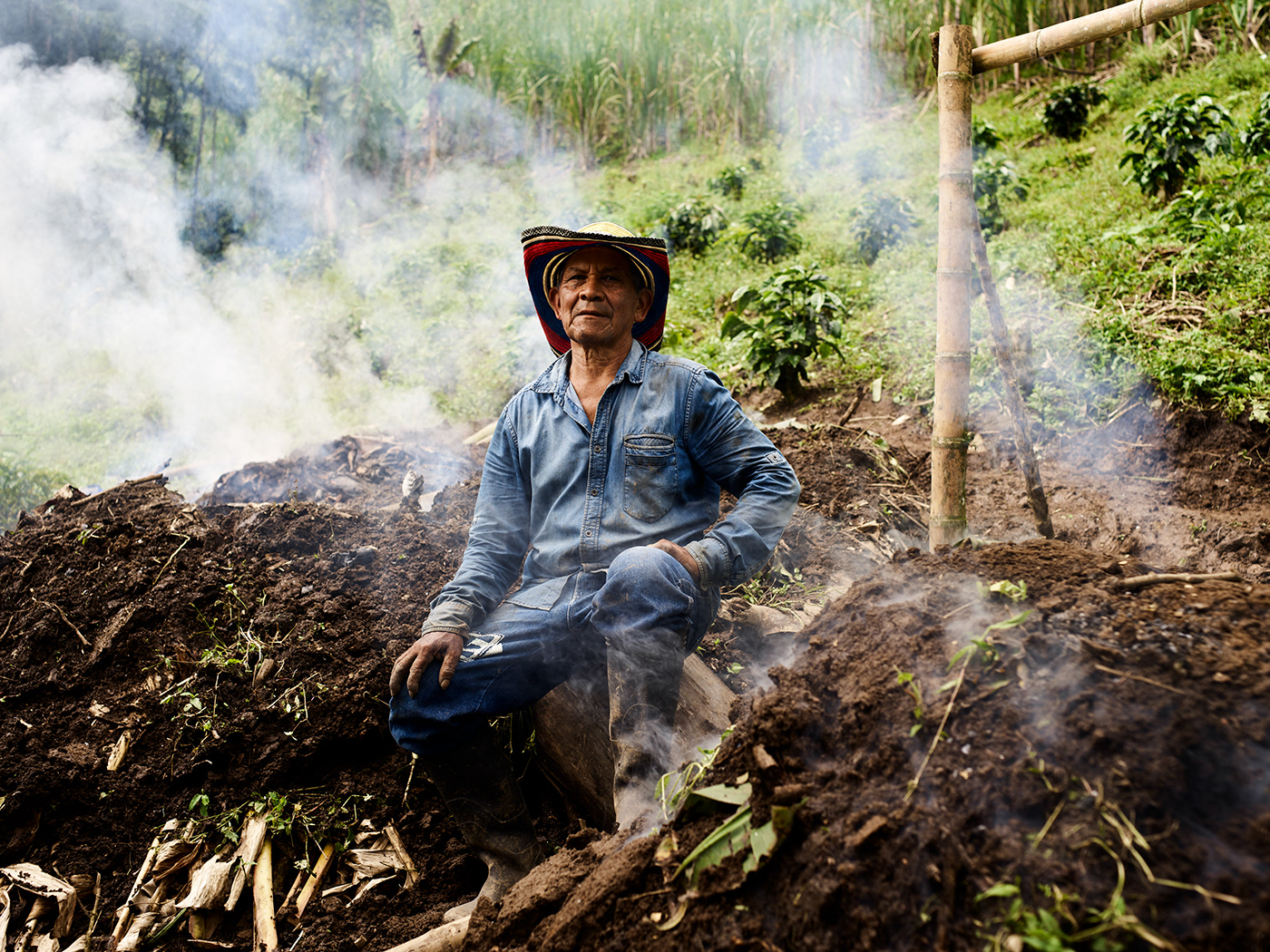

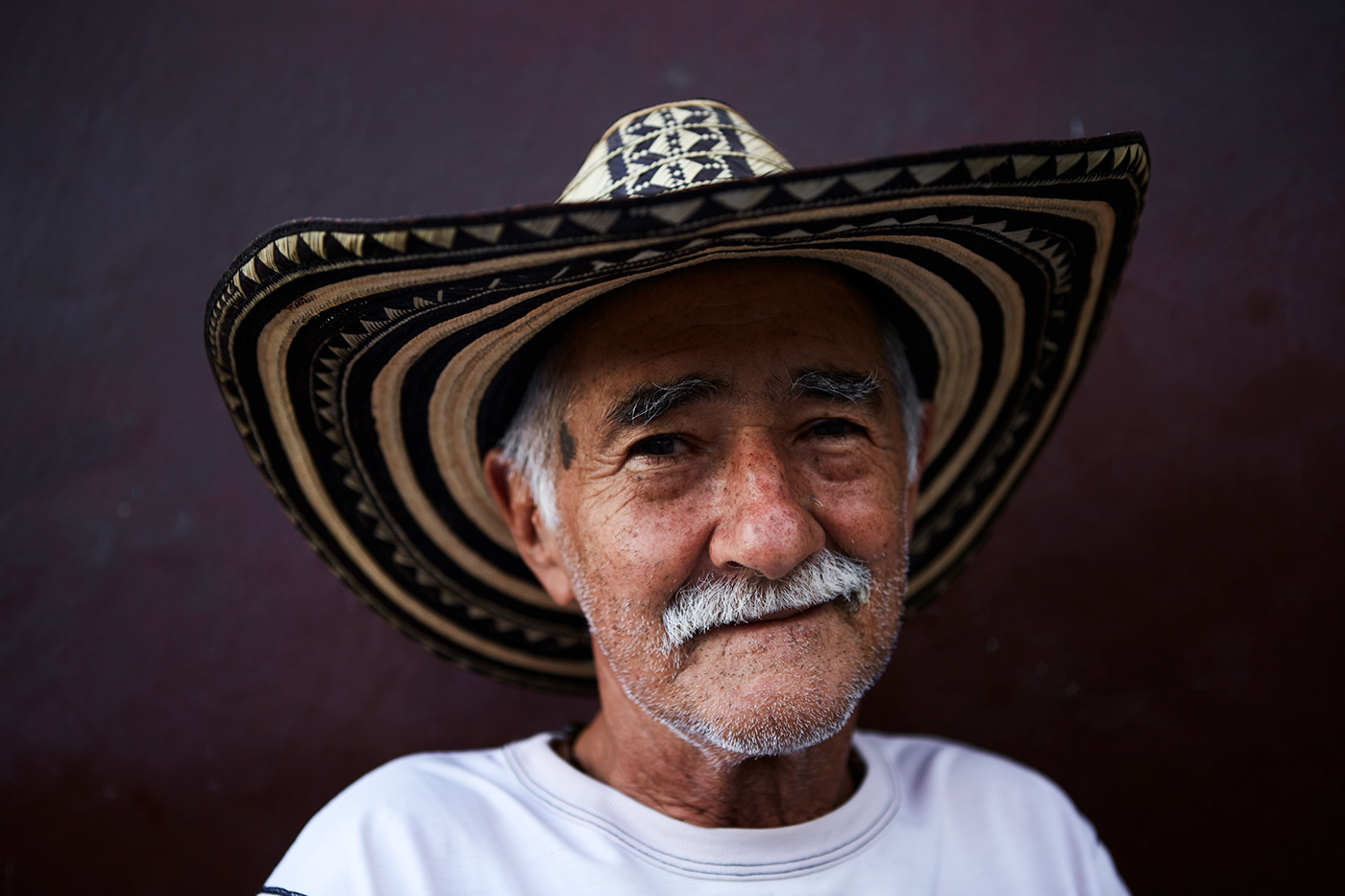
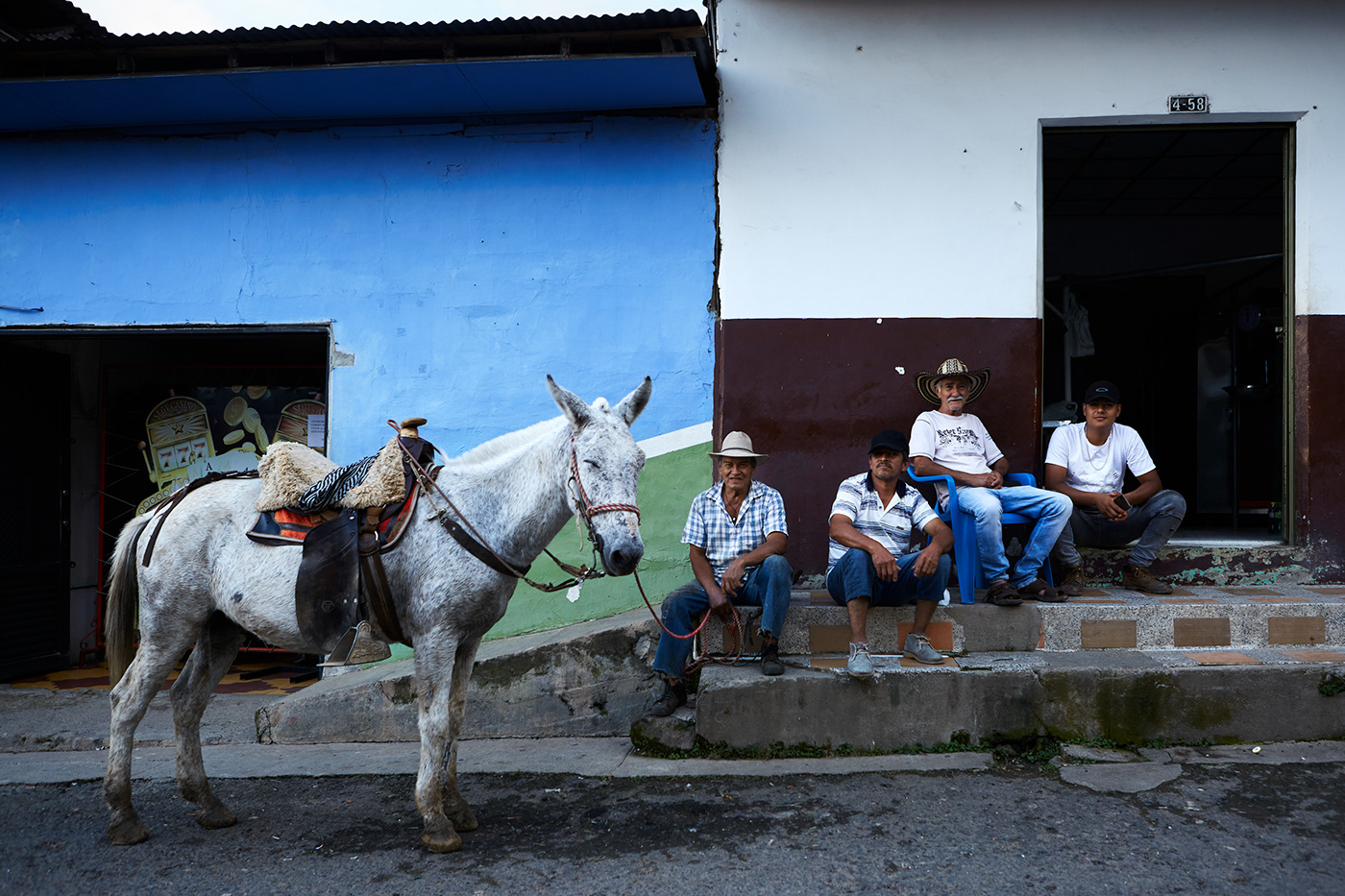
Colombia, November 2021.


